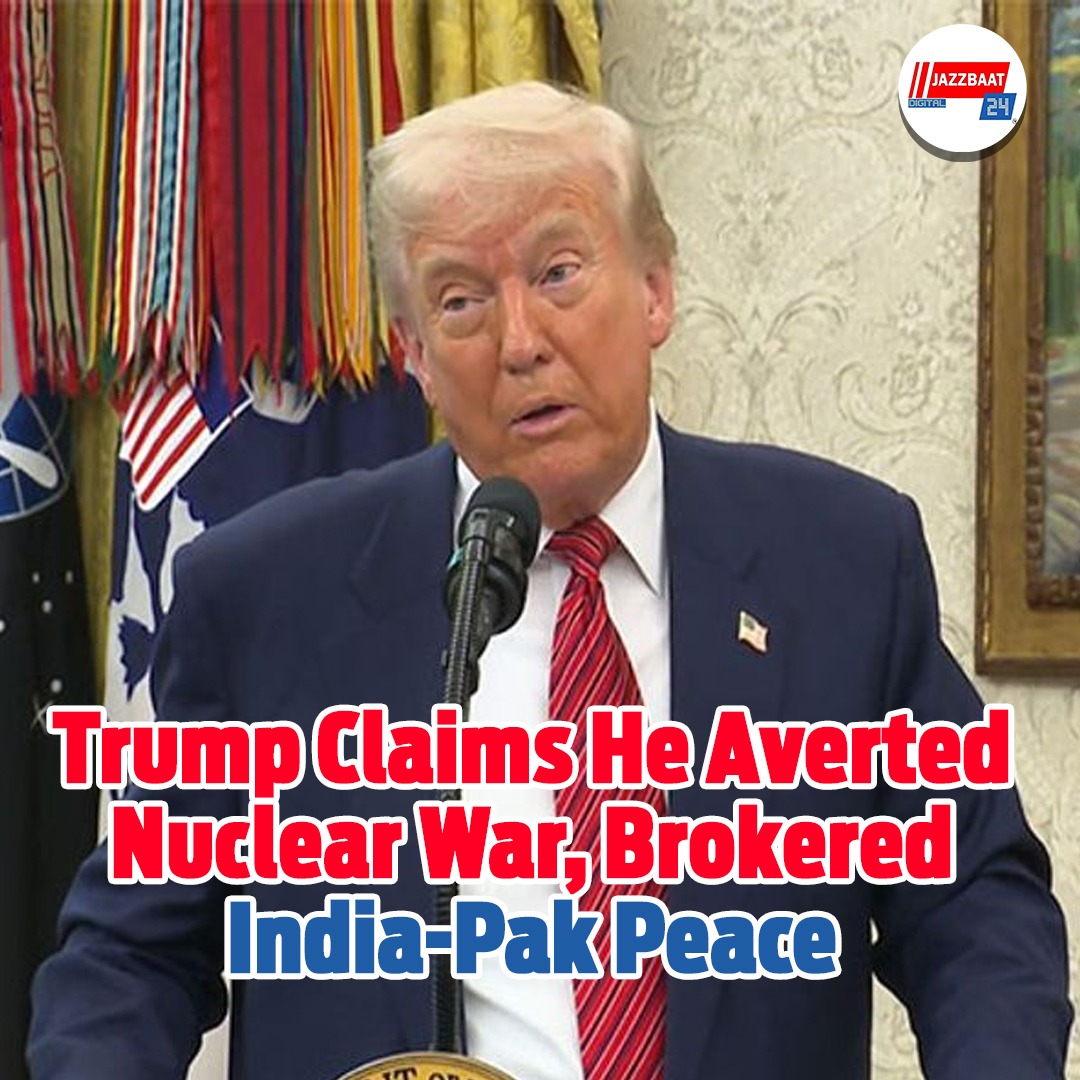
US President Donald Trump said he had earned credit for saving the world from a possible nuclear war between Pakistan and India after his administration facilitated the ceasefire, which brought the days of intensive cross-border raids to an end. Addressing journalists at the White House on Monday, Trump stated, "We stopped a nuclear conflict. I think it could have been a bad nuclear war. Millions of people could have been killed, so I'm very proud about that".
Trump explained that he employed the threat of halting trade with both India and Pakistan as leverage to pressure the two South Asian adversaries to a ceasefire. "I said, come on, we're going to have a lot of trade with you guys. Let's stop it. If you stop it, we'll do a trade.". If you don't stop it, we're not going to do any trade, Trump recalled, stating that both nations immediately agreed to stop military activities following his threat. He noted that trade was a very strong incentive in determining the actions of New Delhi and Islamabad, and that he was holding negotiations with India on trade, with talks with Pakistan to commence in the near future.
The most recent India-Pakistan escalation was initiated by a violent militant attack in Pahalgam, Jammu and Kashmir, that resulted in 26 Indian tourists being killed. India retaliated with missile and drone attacks on Pakistani targets and Pakistan-administered Kashmir, resulting in a few days of heavy aerial and artillery exchanges. Both sides reported having caused serious damage to the other's military infrastructure, and the threat of nuclear escalation hung in the air, considering both nations' nuclear capabilities and unclear doctrines on first use of nuclear weapons.
Trump's assertion that he "stopped a nuclear conflict" is made against the backdrop of widespread global fear that the war could escalate into the world's first war between two nuclear powers. Diplomats and experts have observed that US mediators, joined by the UK and Saudi Arabia, were instrumental in defusing the crisis behind the scenes, with US Secretary of State Marco Rubio's calls to Pakistani Army Chief Asim Munir mentioned as turning points in the diplomatic efforts towards peace.
Contrary to Trump's claims, Indian officials have reaffirmed that the ceasefire was negotiated exclusively between New Delhi and Islamabad in line with India's long-standing policy of settling disputes bilaterally and not accepting third-party mediation. "There is no decision to hold talks on any other issue at any other place," a senior Indian official stated, categorically dismissing proposals of international facilitation or mediation of the Kashmir dispute.
Trump has also proposed mediating on the Kashmir conflict, stating his willingness to engage both nations in mediating the solution but has always been rebuffed by India. India has always maintained that Jammu and Kashmir is a domestic issue and that any disputes with Pakistan should be resolved bilaterally.
The ceasefire continues to be tenuous, with both parties accusing one another of breaches even after the announcement of the agreement. Still, Trump's entry into the negotiations is being hailed by the US administration as a key factor in yanking the region back from the edge of a devastating war.